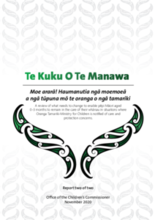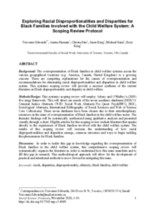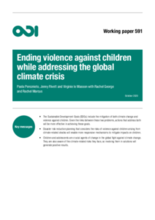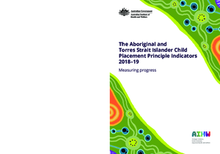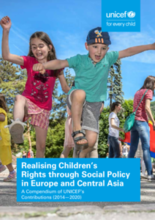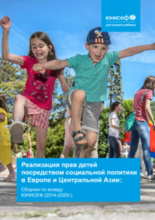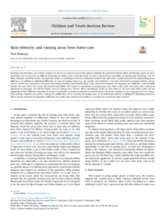Displaying 91 - 100 of 505
The Children’s Commissioner of New Zealand undertook a thematic review of the policies, processes and practices of Oranga Tamariki Ministry for Children relating to care and protection issues for pēpi Māori (Māori infants) aged 0-3 months. This second report comes to the clear conclusion that to keep pēpi in the care of their whānau, Māori must be recognised as best placed to care for their own.
This systemic scoping review will provide a succinct synthesis of the current literature on Black disproportionality and disparity in child welfare.
This working paper focuses on two critical global challenges: violence against children and climate change. The links between the two are not always obvious, but they exist and are significant in terms of both causes and solutions. Combating the causes of climate change can impact positively on certain contexts in which children are at high risk of experiencing violence.
This report brings together the latest state and territory data on 5 Aboriginal and Torres Strait Islander Child Placement Principle (ATSICPP) indicators that measure and track the application of the Placement and Connection elements of the ATSICPP.
This Compendium documents UNICEF’s social policy interventions in Europe and Central Asia from 2014-2020 and includes 18 case studies from 15 different countries as well as stories from the field.
This Russian language Compendium documents UNICEF’s social policy interventions in Europe and Central Asia from 2014-2020 and includes 18 case studies from 15 different countries as well as stories from the field.
This article documents the author's experiences with the state’s contemporary removal of Aboriginal children in Western Australia (WA) and the practice of Aboriginal Family Led Decision Making (AFLDM), a family led decision making process supported as best practice for Aboriginal families.
Using data from 17 states in the U.S., the author of this study measured the probability of running away from foster care for Black, Hispanic, and White youth.
This study investigated rates of guardianship and adoption dissolution using a complete entry cohort from a large state foster care system and the associations between child characteristics and risk factors with dissolution.
This paper describes the upEND movement, a collaborative movement aimed at abolishing the child welfare system as we know it and reimagining how we as a society support child, family, and community safety and well-being.

